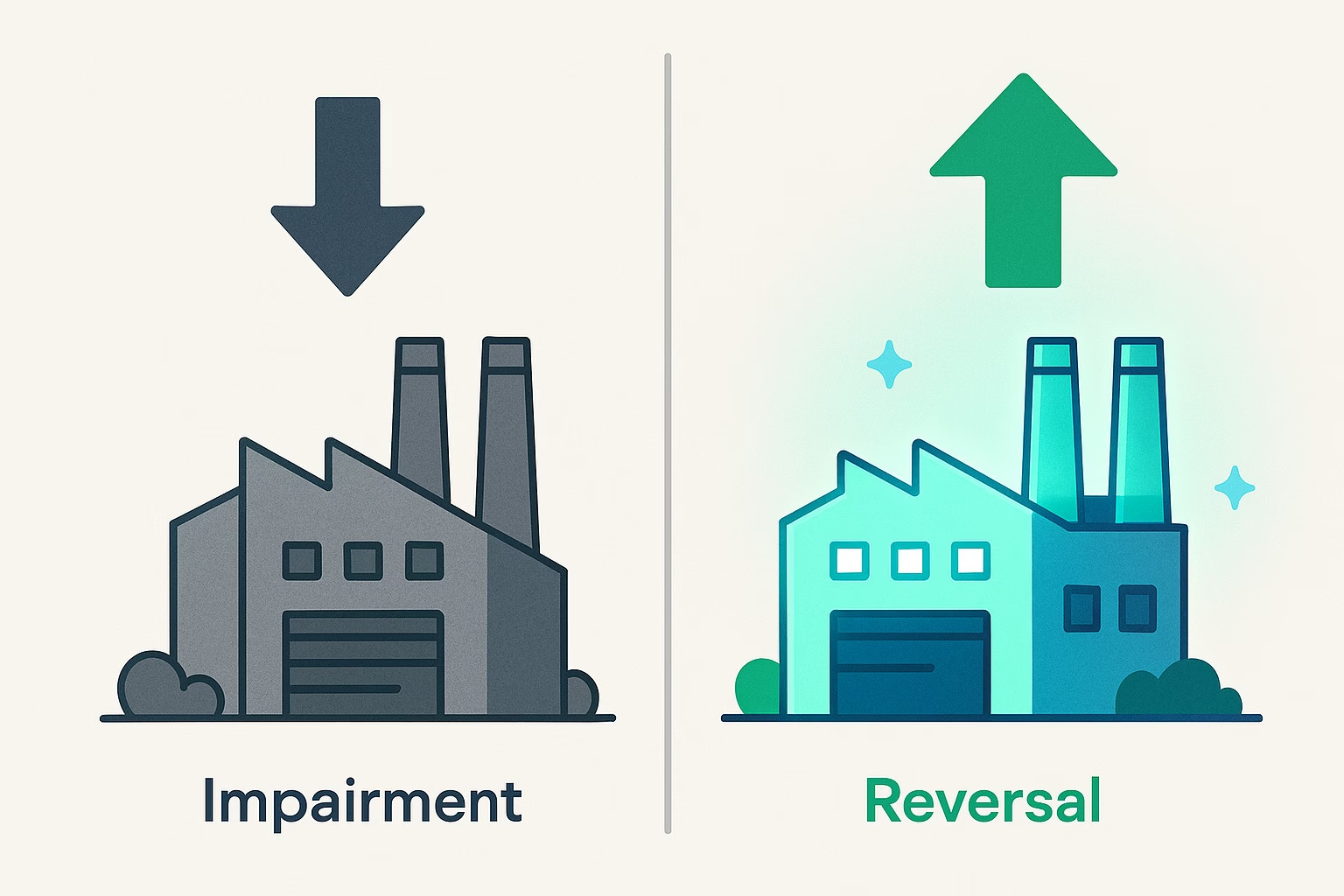In accounting, an impairment occurs when the carrying value of an asset on the balance sheet is higher than its recoverable amount (what the company can actually recover through use or sale). When this happens, the company records an impairment loss, reducing the asset’s value in the books.
However, business conditions don’t always stay the same. Sometimes, the reasons that led to the impairment improve — for example:
- Market demand increases.
- New technology enhances the asset’s usefulness.
- The economy recovers from a downturn.
- The fair value of the asset rises due to external market factors.
When these improvements occur, accounting standards may allow the company to reverse part of the impairment — this is called an impairment reversal. It essentially means restoring some of the asset’s value in the financial statements, but only up to the original carrying amount before the impairment.
Example
Suppose a company owns equipment recorded at $1,000,000. Due to a slump in demand, its recoverable amount falls to $700,000, so the company records a $300,000 impairment loss.
- A year later, demand recovers, and the asset’s recoverable amount increases to $850,000.
- The company can record an impairment reversal of $150,000 (from $700,000 to $850,000).
- But it cannot exceed the original $1,000,000 — the reversal is capped.
Key Points to Note
- IFRS (IAS 36) allows impairment reversals for most assets (such as PPE, intangible assets, investments), except for goodwill.
- US GAAP is stricter: reversals of impairments for most non-financial assets are not permitted.
- This treatment helps keep financial statements realistic, ensuring assets aren’t permanently undervalued when conditions improve.
In short: Impairment reversal is the accounting recognition of an asset’s recovery in value after a period of decline, but with safeguards to prevent overstating the asset.

